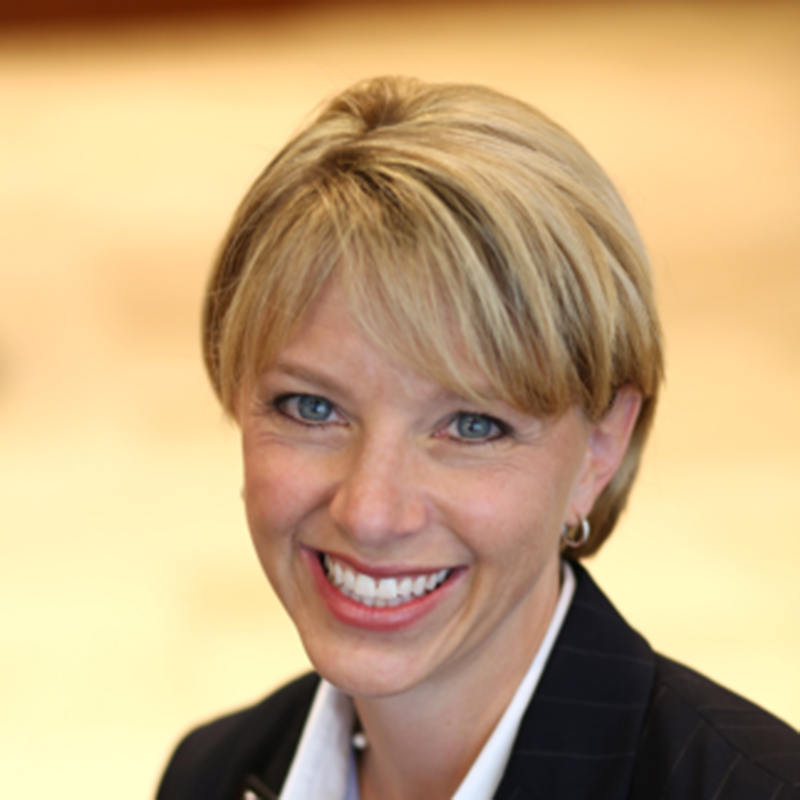
Kelly Braverman (MHA’02) assumed the role of District 3 Regent for the American College of Healthcare Executives (ACHE) during the 2019 annual Congress on Healthcare Leadership held March 4-7 in Chicago. The Council of Regents is a non-governing body that promotes ACHE’s vision, mission, and values to the governance and its districts.
As regent, Braverman represents members of the Indiana Healthcare Executive Network (IHEN), the local chapter of ACHE. “The regent’s role is to help provide two-way communication between IHEN members and the ACHE organization,” explains Braverman. “I will represent the members of IHEN to ACHE by sharing their interests and working to ensure they are aware of the programs offered by ACHE. I will also be a resource for individuals interested in learning more about what ACHE has to offer, or how to advance to fellow status.”
Braverman, who is president of Indiana University Health Frankfort Hospital, credits the MHA program for expanding her view of healthcare. “When I started the program, I had a pretty good idea of what my primary care physician did and what a hospital provided, but through the MHA program I learned that healthcare is a lot more diverse than that.”
Braverman acknowledges the program's role in teaching her the importance of policy and relationships with government officials to positively impact healthcare. “At Frankfort, I have had the opportunity to work closely with our county and city officials. The MHA program provided me insight and exposure that was very helpful.”
At IU Health, Braverman also oversees the Administrative Fellowship program—a point of pride. “It’s a great opportunity to stay in touch with each new generation coming up,” she says.
Braverman encourages students to pursue a fellowship to gain practical experience that complements what they learn in the MHA program.
“Fellowships not only provide practical experience; they also allow the individual to have an understanding of what they like to do. Healthcare is so broad, which is one of the greatest things about this industry. By doing a fellowship, they have a little more time to figure out who they are and what they care about. An internship is a great start, but one summer does not necessarily provide adequate exposure, whereas most fellowships provide numerous opportunities via projects and rotations, with more time to grow and learn.”
Braverman challenges young graduates to pursue mentorship relationships less strictly and to be perpetual learners. “I have a lot of mentors, and some of them are colleagues. I may ask a colleague if they would put on a mentor hat for a minute and help me work through a challenge,” she says.
Braverman believes that, if nurtured effectively, those mentor relationships can develop beyond work scenarios and even provide advice regarding work-life balance and life in general.
“Those in the field must be willing to have a flexible and resilient attitude due to the ever-constant change in the healthcare field,” she says.
Braverman encourages fellows to focus on the reason they are in healthcare, which, for her, is to provide better outcomes for patients, including ways to make their healthcare more accessible and affordable, ultimately helping them become invested in improving their own health.

